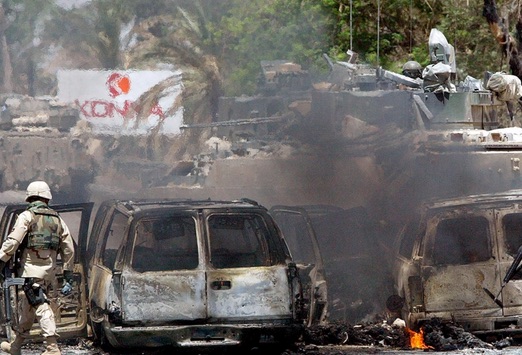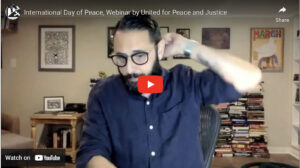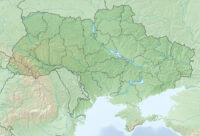The September 16, 2007 Nisour Square massacre of 17 Iraqi civilians, including two young boys, by Blackwater employees led to worldwide condemnation of the use of private military contractors in war zones. In addition to those killed, at least 20 other Iraqis were wounded in the conflict. Now, former U.S. President Donald Trump’s December 2020 pardon of the four men who were convicted and had been serving jail terms for murder and manslaughter has sparked a new round of outrage in Iraq and internationally.
Mohammed Kinani, an Iraqi-U.S. dual citizen whose nine-year-old son Ali was killed in Nisour Square said, “That day destroyed me completely.” Kinani assailed Trump’s pardons, saying they “broke my life again. He [Trump] broke the law. He broke the court.” Iraq’s foreign ministry said the pardons were inconsistent with the U.S. administration’s “declared commitment to the values of human rights, justice and the rule of law,” and urged the U.S. government to reconsider the decision. The UN strongly criticized the pardons, warning that they could encourage others to commit similar crimes. A spokeswoman for the UN Human Rights Office, called on the U.S. to “renew its commitment to fighting impunity for gross human rights violations and serious violations of international humanitarian law, as well as to uphold its obligations to ensure accountability for such crimes”.
The former Blackwater guards who had been convicted are Nicholas Slatten, who was accused of opening fire on the civilians in Nisour and was found guilty of murder; he was serving a life sentence. The other three men, Paul Slough, Evan Liberty and Dustin Heard, were charged in the deaths of 14 of the 17 Iraqis killed, which the F.B.I. determined violated rules for deadly use of force; they were serving 15-year sentences.
Erik Prince, who founded Blackwater, has been a strong Trump supporter; his sister, Betsy DeVos, was serving in Trump’s cabinet as Secretary of Education when the pardons were granted. Blackwater changed its name to Xe after the convictions and then again to Academi after Erik Prince sold the company.
In a letter published in the New York Times, John M. Patarini wrote, “I was the F.B.I. case agent who led the investigation of the Blackwater massacre in Baghdad. We originally went to Iraq thinking this shooting was some form of innocent civilians caught in the crossfire between Blackwater guards and insurgents. After only one week, we determined that this incident was not as presented by Blackwater personnel and their State Department lackeys, but it was a massacre….” Patarini denounced the concerted political effort to push for the pardons, and concluded, “Having spent many hours with the innocent Iraqi victims who are permanently maimed and crippled because of the actions of these Blackwater guards, and the heartbroken family members of those killed, I am embarrassed for our country.”
Hina Shamsi, director of the American Civil Liberties Union’s National Security Project, said President Trump had “hit a disgraceful new low with the Blackwater pardons.” Former U.S. Department of Justice officials who worked on the case, said that the trial that led to the convictions was one of the most logistically and legally complex ones in recent U.S. history. “We had to send teams of F.B.I. agents and prosecutors over there to build the case from the ground up — they had to risk their lives to collect the evidence. We had to persuade Iraqis who lost loved ones to come over to testify,” said Ronald C. Machen, the U.S. attorney for the District of Columbia who oversaw the case. Dozens of Iraqis agreed to come to the U.S. and give evidence in court in 2014. At the trial, which lasted for more than three months, a federal jury convicted the men in the deaths of 14 civilians and injury of many more. The judge called the shootings a “wild thing” that cannot be condoned. “And to think it all gets thrown away,” U.S. attorney Machen said with regret.
U.S. presidential pardons, before Trump’s, were given for nonviolent crimes, not manslaughter or murder. Those who received pardons would accept responsibility and express remorse for their crimes. Trump’s pardons have been influenced by personal appeals from his political allies and supporters. The four Blackwater guards who were pardoned, and their supporters who lobbied for their pardons have not accepted responsibility. Evan Liberty has expressed little remorse for his actions. In his first interview following his release, he said of his conduct in 2007, “I feel like I acted correctly”.
The 14 victims killed by the Blackwater employees were Ahmed Haithem Ahmed Al Rubia’y, Mahassin Mohssen Kadhum Al-Khazali, Osama Fadhil Abbas, Ali Mohammed Hafedh Abdul Razzaq, Mohamed Abbas Mahmoud, Qasim Mohamed Abbas Mahmoud, Sa’adi Ali Abbas Alkarkh, Mushtaq Karim Abd Al-Razzaq, Ghaniyah Hassan Ali, Ibrahim Abid Ayash, Hamoud Sa’eed Abttan, Uday Ismail Ibrahiem, Mahdi Sahib Nasir and Ali Khalil Abdul Hussein.



